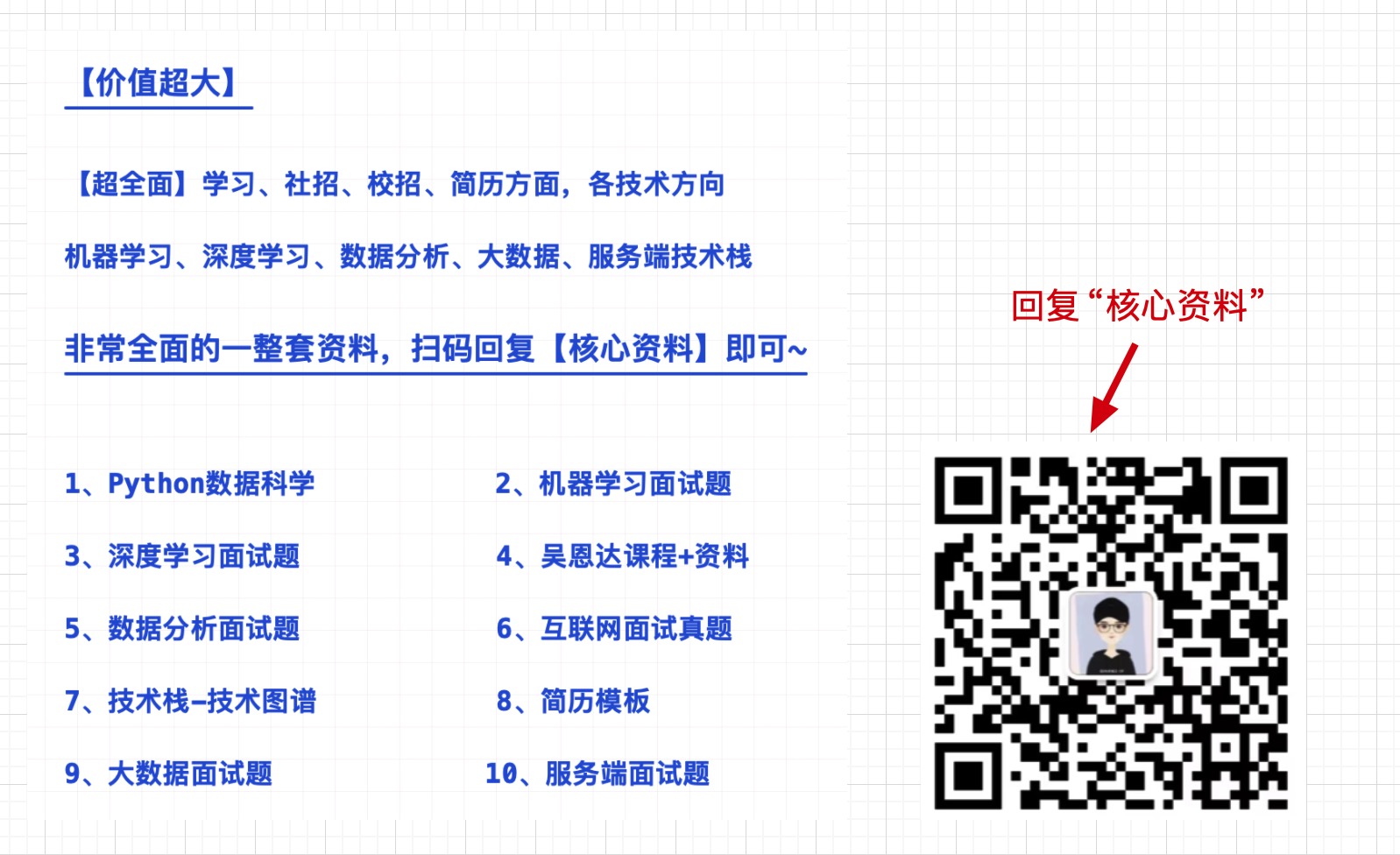@tf_export("nn.ctc_greedy_decoder")
@dispatch.add_dispatch_support
def ctc_greedy_decoder(inputs,
sequence_length,
merge_repeated=True,
blank_index=None):
"""Performs greedy decoding on the logits given in input (best path).
Given a tensor as inputs, the blank_index parameter defines the class
index of the blank symbol.
For example:
If blank_index is equal to 1:
>>> inf = float("inf")
>>> logits = tf.constant([[[ 0., -inf, -inf],
... [ -2.3, -inf, -0.1]],
... [[ -inf, -0.5, -inf],
... [ -inf, -inf, -0.1]],
... [[ -inf, -inf, -inf],
... [ -0.1, -inf, -2.3]]])
>>> seq_lens = tf.constant([2, 3])
>>> outputs = tf.nn.ctc_greedy_decoder(
... logits,
... seq_lens,
... blank_index=1)
Notes:
- Unlike ctc_beam_search_decoder, ctc_greedy_decoder considers blanks
as regular elements when computing the probability of a sequence.
- Default blank_index is (num_classes - 1), unless overriden.
If merge_repeated is True, merge repeated classes in output.
This means that if consecutive logits' maximum indices are the same,
only the first of these is emitted. The sequence A B B * B * B (where '*'
is the blank label) becomes
* A B B B if merge_repeated=True.
* A B B B B if merge_repeated=False.
Args:
inputs: 3-D float Tensor sized [max_time, batch_size, num_classes].
The logits.
sequence_length: 1-D int32 vector containing sequence lengths, having size
[batch_size].
merge_repeated: Boolean. Default: True.
blank_index: (Optional). Default: num_classes - 1. Define the class index
to use for the blank label. Negative values will start from num_classes,
ie, -1 will reproduce the ctc_greedy_decoder behavior of using
num_classes - 1 for the blank symbol, which corresponds to the default.
Returns:
A tuple (decoded, neg_sum_logits) where
decoded: A single-element list. decoded[0]
is an SparseTensor containing the decoded outputs s.t.:
decoded.indices: Indices matrix (total_decoded_outputs, 2).
The rows store: [batch, time].
decoded.values: Values vector, size (total_decoded_outputs).
The vector stores the decoded classes.
decoded.dense_shape: Shape vector, size (2).
The shape values are: [batch_size, max_decoded_length]
neg_sum_logits: A float matrix (batch_size x 1) containing, for the
sequence found, the negative of the sum of the greatest logit at each
timeframe.
"""
outputs = gen_ctc_ops.ctc_greedy_decoder(
inputs,
sequence_length,
merge_repeated=merge_repeated,
blank_index=blank_index)
(decoded_ix, decoded_val, decoded_shape, log_probabilities) = outputs
return ([sparse_tensor.SparseTensor(decoded_ix, decoded_val,
decoded_shape)], log_probabilities)
REGISTER_OP("CTCGreedyDecoder")
.Input("inputs: T")
.Input("sequence_length: int32")
.Attr("merge_repeated: bool = false")
.Attr("blank_index: int = -1")
.Output("decoded_indices: int64")
.Output("decoded_values: int64")
.Output("decoded_shape: int64")
.Output("log_probability: T")
.Attr("T: {float, double} = DT_FLOAT")
.SetShapeFn([](InferenceContext* c) {
ShapeHandle inputs;
ShapeHandle sequence_length;
TF_RETURN_IF_ERROR(c->WithRank(c->input(0), 3, &inputs));
TF_RETURN_IF_ERROR(c->WithRank(c->input(1), 1, &sequence_length));
DimensionHandle batch_size;
TF_RETURN_IF_ERROR(
c->Merge(c->Dim(inputs, 1), c->Dim(sequence_length, 0), &batch_size));
DimensionHandle total_decoded_outputs = c->UnknownDim();
c->set_output(0, c->Matrix(total_decoded_outputs, 2));
c->set_output(1, c->Vector(total_decoded_outputs));
c->set_output(2, c->Vector(2));
c->set_output(3, c->Matrix(batch_size, 1));
return Status::OK();
});
#define REGISTER_OP_IMPL(ctr, name, is_system_op) \
static ::tensorflow::InitOnStartupMarker const register_op##ctr \
TF_ATTRIBUTE_UNUSED = \
TF_INIT_ON_STARTUP_IF(is_system_op || SHOULD_REGISTER_OP(name)) \
<< ::tensorflow::register_op::OpDefBuilderWrapper(name)
#define REGISTER_OP(name) \
TF_ATTRIBUTE_ANNOTATE("tf:op") \
TF_NEW_ID_FOR_INIT(REGISTER_OP_IMPL, name, false)
#define REGISTER_CPU(T) \
REGISTER_KERNEL_BUILDER( \
Name("CTCGreedyDecoder").Device(DEVICE_CPU).TypeConstraint<T>("T"), \
CTCGreedyDecoderOp<T>);
REGISTER_CPU(float);
REGISTER_CPU(double);
template <typename T>
class CTCGreedyDecoderOp : public OpKernel {
public:
explicit CTCGreedyDecoderOp(OpKernelConstruction* ctx) : OpKernel(ctx) {
OP_REQUIRES_OK(ctx, ctx->GetAttr("merge_repeated", &merge_repeated_));
OP_REQUIRES_OK(ctx, ctx->GetAttr("blank_index", &blank_index_));
}
void Compute(OpKernelContext* ctx) override {
const Tensor* inputs;
const Tensor* seq_len;
Tensor* log_prob = nullptr;
OpOutputList decoded_indices;
OpOutputList decoded_values;
OpOutputList decoded_shape;
OP_REQUIRES_OK(ctx, decode_helper_.ValidateInputsGenerateOutputs(
ctx, &inputs, &seq_len, &log_prob, &decoded_indices,
&decoded_values, &decoded_shape));
const TensorShape& inputs_shape = inputs->shape();
std::vector<typename TTypes<T>::UnalignedConstMatrix> input_list_t;
const int64_t max_time = inputs_shape.dim_size(0);
const int64_t batch_size = inputs_shape.dim_size(1);
const int64_t num_classes_raw = inputs_shape.dim_size(2);
OP_REQUIRES(
ctx, FastBoundsCheck(num_classes_raw, std::numeric_limits<int>::max()),
errors::InvalidArgument("num_classes cannot exceed max int"));
const int num_classes = static_cast<const int>(num_classes_raw);
auto inputs_t = inputs->tensor<T, 3>();
input_list_t.reserve(max_time);
for (std::size_t t = 0; t < max_time; ++t) {
input_list_t.emplace_back(inputs_t.data() + t * batch_size * num_classes,
batch_size, num_classes);
}
auto seq_len_t = seq_len->vec<int32>();
auto log_prob_t = log_prob->matrix<T>();
log_prob_t.setZero();
int blank_index =
(blank_index_ < 0) ? num_classes + blank_index_ : blank_index_;
OP_REQUIRES(ctx, FastBoundsCheck(blank_index, num_classes),
errors::InvalidArgument("blank_index expected to be between ",
-num_classes, " and ", num_classes - 1,
" but was ", blank_index_));
decode函数在循环中处理单 batch 的数据。
sequences存储每个批次的每个路径的解码值,所以是三层嵌套。GreedyDecoder 只生成一条路径。
从 seq_len_t数组中获取每个序列的长度。
input_list_t[t]的形状为 [batch_size, num_classes],RowMax 找到当前批次的最大概率值及其对应索引。
log_prob_t累积其负数和。
如果不是空索引并且满足重复筛选条件,则将其添加到路径中。
[En]
If it is not a blank index and the duplicate filter condition is met, it is added to the path.
std::vector<std::vector<std::vector<int> > > sequences(batch_size);
auto decode = [&](const int64_t begin, const int64_t end) {
for (int b = begin; b < end; ++b) {
sequences[b].resize(1);
auto &sequence = sequences[b][0];
int prev_indices = -1;
for (int t = 0; t < seq_len_t(b); ++t) {
int max_class_indices;
OP_REQUIRES(ctx, input_list_t[t].dimension(1) > 0,
errors::InvalidArgument("Invalid input dimensions."));
log_prob_t(b, 0) +=
-RowMax<T>(input_list_t[t], b, &max_class_indices);
if (max_class_indices != blank_index &&
!(merge_repeated_ && max_class_indices == prev_indices)) {
sequence.push_back(max_class_indices);
}
prev_indices = max_class_indices;
}
}
};
const int64_t kCostPerUnit = 50 * max_time * num_classes;
const int64_t total = batch_size;
const DeviceBase::CpuWorkerThreads& worker_threads =
*ctx->device()->tensorflow_cpu_worker_threads();
Shard(worker_threads.num_threads, worker_threads.workers, total,
kCostPerUnit, decode);
OP_REQUIRES_OK(
ctx, decode_helper_.StoreAllDecodedSequences(
sequences, &decoded_indices, &decoded_values, &decoded_shape));
}
private:
CTCDecodeHelper decode_helper_;
bool merge_repeated_;
int blank_index_;
TF_DISALLOW_COPY_AND_ASSIGN(CTCGreedyDecoderOp);
};
public:
CTCDecodeHelper() : top_paths_(1) {}
inline int GetTopPaths() const { return top_paths_; }
void SetTopPaths(int tp) { top_paths_ = tp; }
Status ValidateInputsGenerateOutputs(
OpKernelContext* ctx, const Tensor** inputs, const Tensor** seq_len,
Tensor** log_prob, OpOutputList* decoded_indices,
OpOutputList* decoded_values, OpOutputList* decoded_shape) const {
Status status = ctx->input("inputs", inputs);
if (!status.ok()) return status;
status = ctx->input("sequence_length", seq_len);
if (!status.ok()) return status;
const TensorShape& inputs_shape = (*inputs)->shape();
if (inputs_shape.dims() != 3) {
return errors::InvalidArgument("inputs is not a 3-Tensor");
}
if (inputs_shape.num_elements() == 0) {
return errors::InvalidArgument("inputs must not be empty");
}
const int64_t max_time = inputs_shape.dim_size(0);
const int64_t batch_size = inputs_shape.dim_size(1);
if (max_time == 0) {
return errors::InvalidArgument("max_time is 0");
}
if (!TensorShapeUtils::IsVector((*seq_len)->shape())) {
return errors::InvalidArgument("sequence_length is not a vector");
}
if (!(batch_size == (*seq_len)->dim_size(0))) {
return errors::FailedPrecondition(
"len(sequence_length) != batch_size. ",
"len(sequence_length): ", (*seq_len)->dim_size(0),
" batch_size: ", batch_size);
}
auto seq_len_t = (*seq_len)->vec<int32>();
for (int b = 0; b < batch_size; ++b) {
if (!(seq_len_t(b) max_time)) {
return errors::FailedPrecondition("sequence_length(", b,
") , max_time);
}
}
Status s = ctx->allocate_output(
"log_probability", TensorShape({batch_size, top_paths_}), log_prob);
if (!s.ok()) return s;
s = ctx->output_list("decoded_indices", decoded_indices);
if (!s.ok()) return s;
s = ctx->output_list("decoded_values", decoded_values);
if (!s.ok()) return s;
s = ctx->output_list("decoded_shape", decoded_shape);
if (!s.ok()) return s;
return Status::OK();
}
将 sequences以3个输出变量 decoded_indices、 decoded_values和 decoded_shape表示。
top_paths_为最优路径的数量。
对于每个 batch 序列,计算每个最优路径的条目数。
Status StoreAllDecodedSequences(
const std::vector<std::vector<std::vector<int> > >& sequences,
OpOutputList* decoded_indices, OpOutputList* decoded_values,
OpOutputList* decoded_shape) const {
const int64_t batch_size = sequences.size();
std::vector<int64_t> num_entries(top_paths_, 0);
for (const auto& batch_s : sequences) {
CHECK_EQ(batch_s.size(), top_paths_);
for (int p = 0; p < top_paths_; ++p) {
num_entries[p] += batch_s[p].size();
}
}
for (int p = 0; p < top_paths_; ++p) {
Tensor* p_indices = nullptr;
Tensor* p_values = nullptr;
Tensor* p_shape = nullptr;
const int64_t p_num = num_entries[p];
Status s =
decoded_indices->allocate(p, TensorShape({p_num, 2}), &p_indices);
if (!s.ok()) return s;
s = decoded_values->allocate(p, TensorShape({p_num}), &p_values);
if (!s.ok()) return s;
s = decoded_shape->allocate(p, TensorShape({2}), &p_shape);
if (!s.ok()) return s;
auto indices_t = p_indices->matrix<int64_t>();
auto values_t = p_values->vec<int64_t>();
auto shape_t = p_shape->vec<int64_t>();
int64_t max_decoded = 0;
int64_t offset = 0;
对于每个 batch, p_batch为序列的最优路径。 num_decoded为路径长度。拷贝到 values_t中。
在 indices_t中填 b和 t。 offset为不同 batch 的偏移。
for (int64_t b = 0; b < batch_size; ++b) {
auto& p_batch = sequences[b][p];
int64_t num_decoded = p_batch.size();
max_decoded = std::max(max_decoded, num_decoded);
if (num_decoded > 0) {
DCHECK_NE(values_t.data(), nullptr)
<< "values_t should not be nullptr: p_num=" << p_num
<< " num_decoded=" << num_decoded;
DCHECK_LT(offset, values_t.size())
<< "offset should be smaller than values_t.size()";
std::copy_n(p_batch.begin(), num_decoded, &values_t(offset));
}
for (int64_t t = 0; t < num_decoded; ++t, ++offset) {
indices_t(offset, 0) = b;
indices_t(offset, 1) = t;
}
}
shape_t(0) = batch_size;
shape_t(1) = max_decoded;
}
return Status::OK();
}
private:
int top_paths_;
TF_DISALLOW_COPY_AND_ASSIGN(CTCDecodeHelper);
int index;
TF_RETURN_IF_ERROR(get_input_index(name, &index));
if (input_is_ref(index)) {
return errors::InvalidArgument("OpKernel used ref input name '", name,
"' when non-ref input was expected");
}
*tensor = (*params_->inputs)[index].tensor;
return Status::OK();
template <typename T>
inline T RowMax(const typename TTypes<T>::UnalignedConstMatrix& m, int r,
int* c) {
*c = 0;
CHECK_LT(0, m.dimension(1));
auto p = m(r, 0);
for (int i = 1; i < m.dimension(1); ++i) {
if (m(r, i) > p) {
p = m(r, i);
*c = i;
}
}
return p;
}
CHECK_GE(total, 0);
if (total == 0) {
return;
}
max_parallelism = std::min(max_parallelism, GetPerThreadMaxParallelism());
if (max_parallelism 1) {
work(0, total);
return;
}
if (max_parallelism >= workers->NumThreads()) {
workers->ParallelFor(total, cost_per_unit, work);
return;
}
Sharder::Do(
total, cost_per_unit, work,
[&workers](Sharder::Closure c) { workers->Schedule(c); },
max_parallelism);
调用 函数来处理。
CHECK_GE(total, 0);
CHECK_EQ(total, (int64_t)(Eigen::Index)total);
threadpool_device_->parallelFor(
total, Eigen::TensorOpCost(0, 0, cost_per_unit),
[&fn](Eigen::Index first, Eigen::Index last) { fn(first, last); });
class ThreadPoolDevice : public LocalDevice {
public:
ThreadPoolDevice(const SessionOptions& options, const string& name,
Bytes memory_limit, const DeviceLocality& locality,
Allocator* allocator);
~ThreadPoolDevice() override;
Allocator* GetAllocator(AllocatorAttributes attr) override;
Allocator* GetScopedAllocator(AllocatorAttributes attr,
int64_t step_id) override;
ScopedAllocatorMgr* GetScopedAllocatorMgr() const override {
return scoped_allocator_mgr_.get();
}
Status MakeTensorFromProto(const TensorProto& tensor_proto,
const AllocatorAttributes alloc_attrs,
Tensor* tensor) override;
void CopyTensorInSameDevice(const Tensor* input_tensor, Tensor* output_tensor,
const DeviceContext* device_context,
StatusCallback done) override;
Status Sync() override { return Status::OK(); }
void Compute(OpKernel* op_kernel, OpKernelContext* context) override;
void ComputeAsync(AsyncOpKernel* op_kernel, OpKernelContext* context,
AsyncOpKernel::DoneCallback done) override;
private:
void LogInputs(OpKernel* op_kernel, OpKernelContext* context);
void LogOutputs(OpKernel* op_kernel, OpKernelContext* context);
Allocator* allocator_;
std::unique_ptr<ScopedAllocatorMgr> scoped_allocator_mgr_;
NodeFileWriter* node_file_writer_ = nullptr;
};
参考资料:
Original: https://blog.csdn.net/yiran103/article/details/124057817
Author: 图波列夫
Title: TensorFlow 中的 CTCGreedyDecoder
原创文章受到原创版权保护。转载请注明出处:https://www.johngo689.com/497462/
转载文章受原作者版权保护。转载请注明原作者出处!

